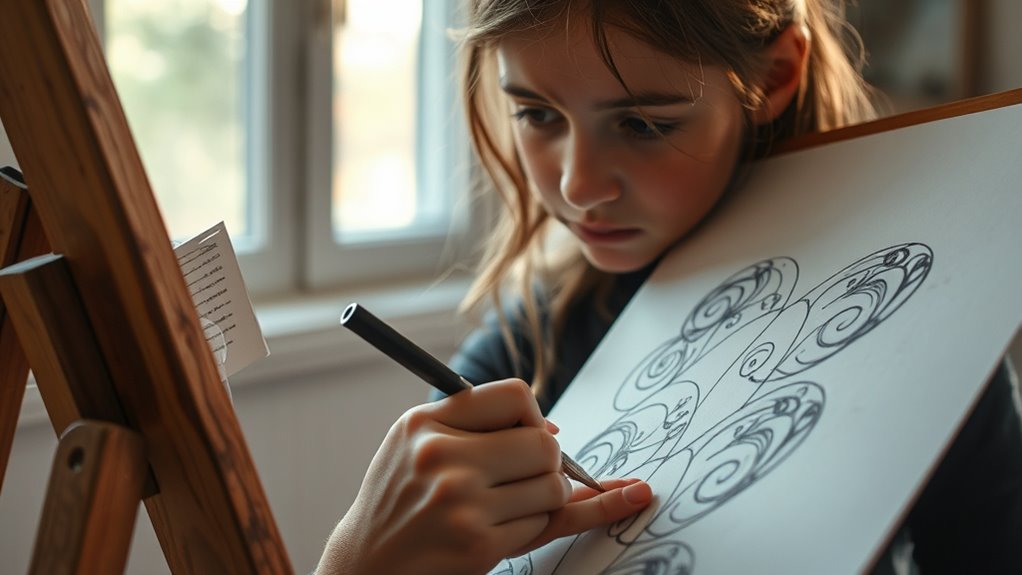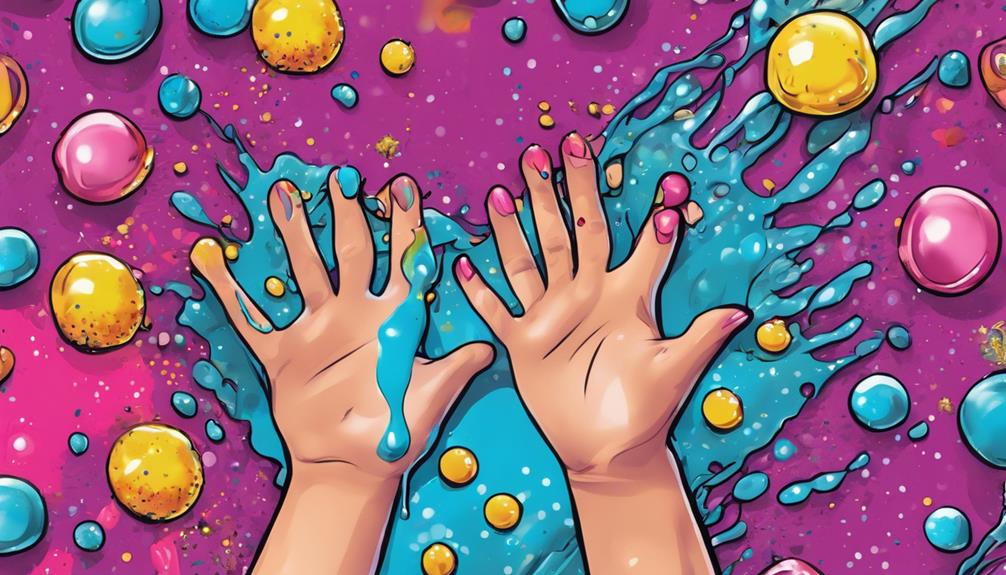Repetition strengthens the neural pathways related to specific activities, making learning faster, easier, and more automatic. Every time you repeat a task, your brain embeds the information into long-term memory and improves pattern recognition, which boosts confidence and motivation. Consistent practice helps you master skills, turning effort into effortless performance. Keep practicing, and you’ll discover how repetition rewires your brain for greater learning efficiency—there’s even more to uncover as you continue exploring.
Key Takeaways
- Repetition strengthens neural pathways, making skills more automatic and efficient over time.
- Consistent practice embeds information into long-term memory, improving recall and retention.
- Repeating activities fosters confidence and motivation through visible progress and mastery.
- Regular repetition creates stronger associations, facilitating faster learning and skill fluency.
- Structured, mindful practice prevents monotony and accelerates skill development through focused effort.

Have you ever wondered why practicing something repeatedly makes it easier and more natural? The answer lies in how repetition influences learning retention and skill mastery. When you engage in the same activity multiple times, you’re fundamentally strengthening the neural pathways associated with that task. Think of your brain as a muscle; the more you use it in a specific way, the stronger and more efficient it becomes at that activity. Repetition helps embed new information into your long-term memory, making recall more automatic over time. This process is what transforms a new skill from something you consciously think about into something you do effortlessly.
Every time you repeat a task, your brain gets better at recognizing patterns and reducing the effort needed to perform that task. For instance, if you’re learning to play the piano, practicing the same scales daily helps your fingers move more fluidly and your mind anticipate the next note. Over days and weeks, what initially felt challenging becomes second nature. This is because repetition increases learning retention—your ability to hold onto and retrieve information when needed. It also pushes you closer to skill mastery, where your performance becomes precise, confident, and automatic.
Repeating tasks sharpens skills and builds confidence through improved pattern recognition and automatic performance.
Repetition doesn’t just help you memorize facts; it enhances your overall competence. When you revisit a concept or activity repeatedly, you’re giving your brain multiple opportunities to process and encode that information. This repeated exposure creates stronger associations, making future recall faster and more reliable. For example, in language learning, practicing vocabulary daily cements words into your memory, so you can use them naturally in conversation. Over time, this repeated practice leads to fluency, as your skills become ingrained and less susceptible to forgetting.
Moreover, consistent repetition fosters confidence. As you notice your progress, you feel motivated to keep going. This confidence feeds into improved performance, which further reinforces the skill. It’s a virtuous cycle: the more you repeat, the better you become, and the better you become, the more motivated you are to continue. It’s important to understand that repetition doesn’t have to be dull or monotonous; strategic and mindful practice keeps it engaging and effective. By setting small, achievable goals and practicing regularly, you’ll see how repetition transforms your capabilities, making complex skills feel natural and intuitive over time.
Furthermore, integrating professional services into your learning or skill development process can provide expert guidance and support, accelerating your mastery. In essence, the magic of repetition lies in its power to boost learning retention and foster skill mastery. When you commit to consistent practice, you’re not just repeating an activity; you’re rewiring your brain to perform at a higher level with less effort. This is the key to turning initial struggle into effortless proficiency.
Frequently Asked Questions
How Does Repetition Influence Long-Term Memory Retention?
Repetition strengthens neural pathways, making it easier for your brain to access information. When you repeat activities, your brain consolidates memories more effectively, embedding them into long-term storage. This process enhances your ability to recall information later. By consistently practicing, you’re actively reinforcing connections, which leads to better long-term memory retention. So, repetition isn’t just about practice—it’s about building durable neural pathways for lasting memories.
Can Repetitive Activities Improve Creativity or Only Memorization?
Imagine you’re in a medieval tavern, yet your question about repetition’s role in creativity feels timeless. Repetitive activities don’t just aid memorization; they also foster creative expansion and enhance problem-solving skills. By practicing a task repeatedly, you deepen understanding and uncover new perspectives. This consistent effort sparks innovation, helping you think outside the box. So, yes, repetition can sharpen your creativity, not just your memory.
What Are the Best Strategies to Prevent Boredom During Repetition?
To prevent boredom during repetition, you should incorporate interactive breaks and gamified routines. Switch up your activities with short, engaging pauses that re-energize you. Use game-like elements such as points or challenges to make the repetition fun. These strategies keep your mind active and interested, making it easier to stay focused and motivated while reinforcing what you’re learning.
Does the Effectiveness of Repetition Vary Across Different Age Groups?
You might think repetition works equally for everyone, but it’s an exaggeration to say it’s the same across all ages. Age-related factors and developmental differences profoundly influence how effective repetition is. Kids may need more variety to stay engaged, while adults often benefit from consistent practice. So, yes, the effectiveness of repetition varies, and tailoring your approach based on age and development can make your learning efforts much more successful.
How Can Technology Enhance Repetitive Learning Without Causing Fatigue?
You can enhance repetitive learning with technology by offering interactive feedback, which keeps you engaged and helps identify areas to improve. Personalized pacing allows you to learn at your own speed, preventing fatigue and frustration. Using adaptive apps or platforms, you stay motivated and focused, making repetition effective without overwhelming you. This tailored approach guarantees you build skills steadily while enjoying the process, making learning more efficient and enjoyable.
Conclusion
Repetition truly works because your brain forms stronger connections with each practice, making skills stick. Some research suggests that spaced repetition, not just endless repetition, boosts long-term learning by giving your mind time to process. So, don’t just repeat mindlessly—combine it with strategic breaks. This approach taps into how your brain naturally consolidates memories, proving that consistent, mindful practice can transform how quickly and deeply you learn.










